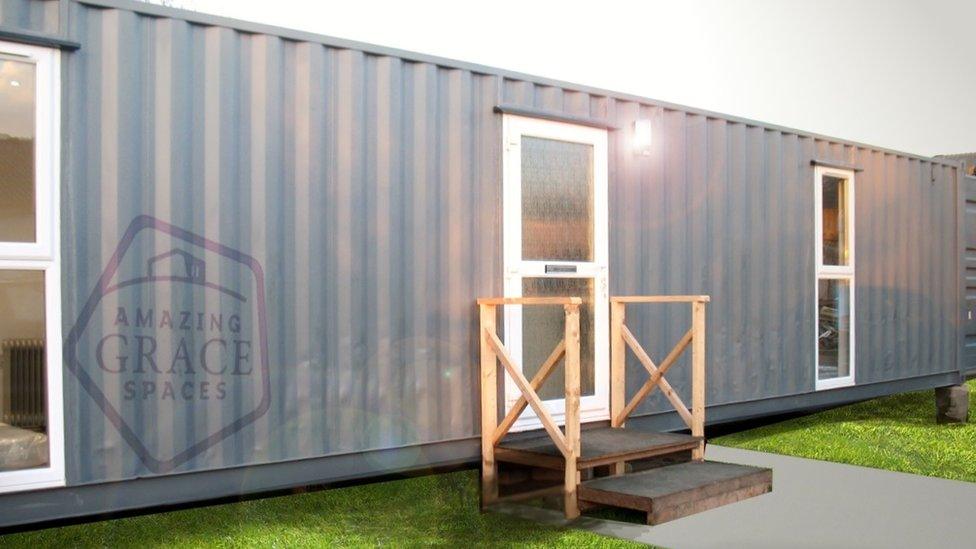Storm Emma: Homeless sleep in snow in Cardiff
- Published
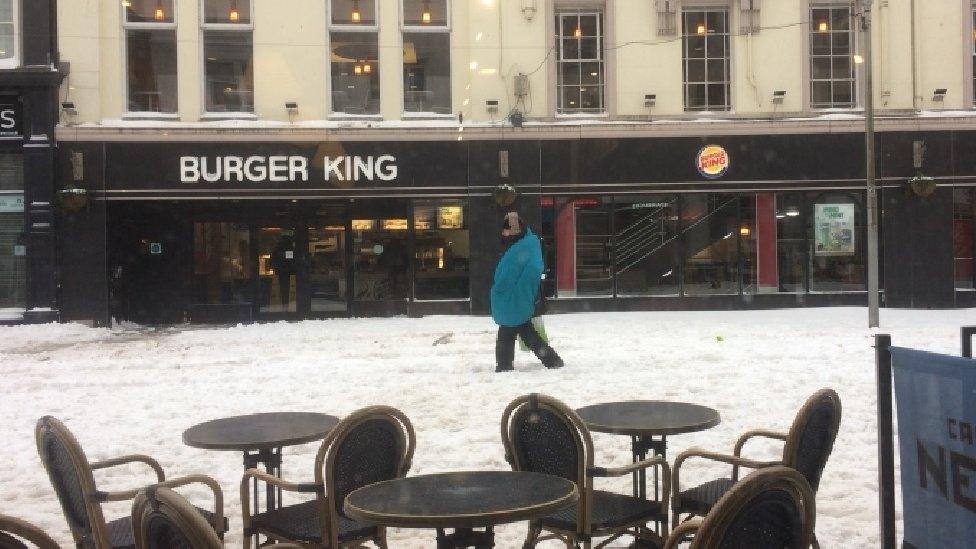
On Thursday night 50 rough sleepers used the emergency floor space at the Huggard Centre for Homeless people in Cardiff as the temperatures plummeted. But some rough sleepers stayed outside in the freezing conditions because they did not want to go in. So, why would people choose to stay in arctic conditions?
Over the last 48 hours I've watched as workers from charities and voluntary groups have tried and failed to persuade rough sleepers to pack up their belongings and head for the safety of shelters run by the council or organisations such as The Huggard Centre.
Karen Wood, a worker at the Huggard Centre, says there are complex reasons why some rough sleepers won't come in.
"Some of them have mental health and substance misuse issues," she said.
"Obviously, we can't encourage them to use on site so they don't stay in because they can't freely use whatever substance they're using.
"We do encourage them to get involved with the substance misuse services but when they're as chaotic as some as our guys are that's quite difficult, so they choose to stay outside."
Earlier in the week, Richard Edwards, the chief executive of the Huggard, told me he was worried rough sleepers could die this week, unless they got out of the cold.
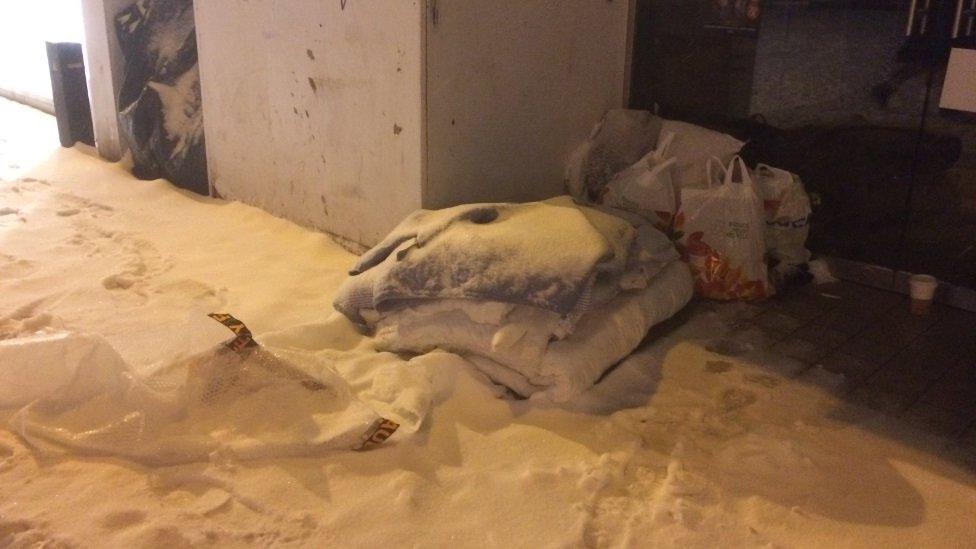
Simon, a homeless man in his 30s, is a familiar face to many people in the capital.
We found Simon and his English Mastiff dog, Sasha, being given a bag of food and water by passersby outside the city's central library late on Thursday night. He told me he didn't want to go into a shelter and felt safer on the street.
"I'm going to bed down out of the wind," he said.
"I've got the dog and she'll look after me. I don't want to go into those places, I'm ok as I am."
He has spent years living on the streets and although he admitted the conditions were the worst he has ever seen, he would not go into an emergency shelter.
One of the big issues for rough sleepers with dogs is that some accommodation will not allow them.
But for homeless people their dog is sometimes their only friend, as well as a source of warmth and protection.
We told Simon that the Huggard had said it was accepting dogs in their day centre and was providing cages for dogs to be kept with their owners in the emergency accommodation, but still he said no.

The River Taff in Cardiff has frozen in the big freeze
Earlier in the day we came across a young woman lying in a doorway opposite Marks and Spencer, covered in duvets, blankets and sheets of plastic as shoppers hurried by.
She was desperately cold, but still adamant that she would not go to a shelter. As she drifted in and out of consciousness I took the decision to ring 999 and ask a paramedic response team to go to her.
Later that night we walked past her pitch. She had gone but her duvet was still there.
I also met Dave, an Irishman who had set up in an underpass with his friend.
He told me he had been homeless for 17 years and had woken up that morning covered in snow.
"I don't want to go inside, I'm ok here, we cwtched up together last night," he said.
His hands were swollen and chapped from the cold and he was shaking violently.
Two Salvation Army outreach workers tried to gently persuade the two men to pack up their duvets and go with them to an emergency shelter, but they would not go.
They know the men well. They told me they cannot force people to go into shelters if they do not want to go.
They explained some rough sleepers find it difficult to go into emergency accommodation and in close proximity to other people after years of living on the streets alone.
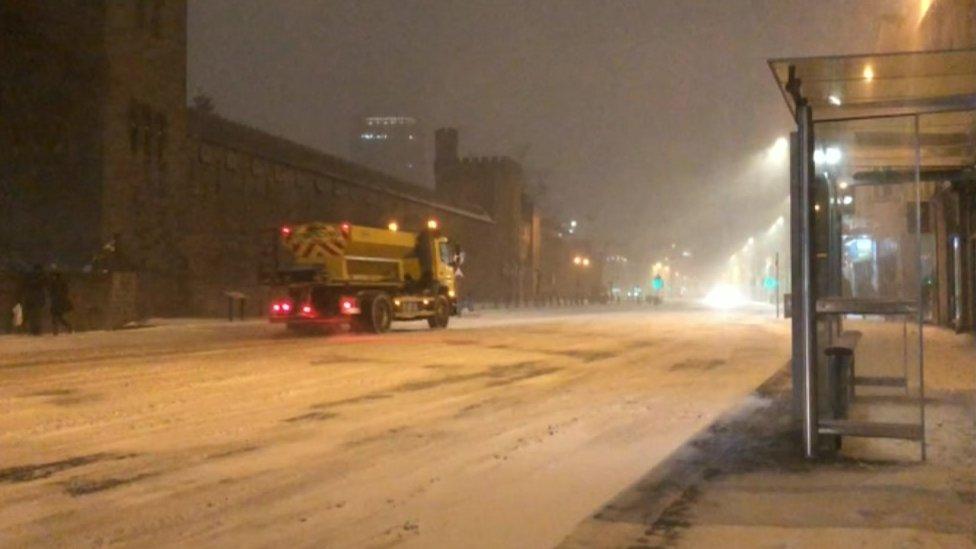
The Met Office's red warning on Thursday meant there was a potential risk to life
Cardiff city centre on Friday morning was quiet as the majority of shops and offices remained closed.
Small groups of rough sleepers huddled together in the shadow of Aneurin Bevan's statue in the city's main shopping street.
They told me they had spent the night in a church hall.
They were cold and wet and were asking for gloves and socks, but they said they did not want to go into a day centre.
"Out here we can choose who we're with," one of them told me.
So what can the public do to help?
The StreetLink, external phone app is one way of alerting the authorities. Since Monday, the app and helpline has taken nearly 4,500 referrals across Wales and England.
On the most basic level, the offer of a hot drink and a chat is often appreciated.
For concerns about rough sleepers in Cardiff, the city council's outreach team can be contacted on 02920 873900.
- Published27 February 2018
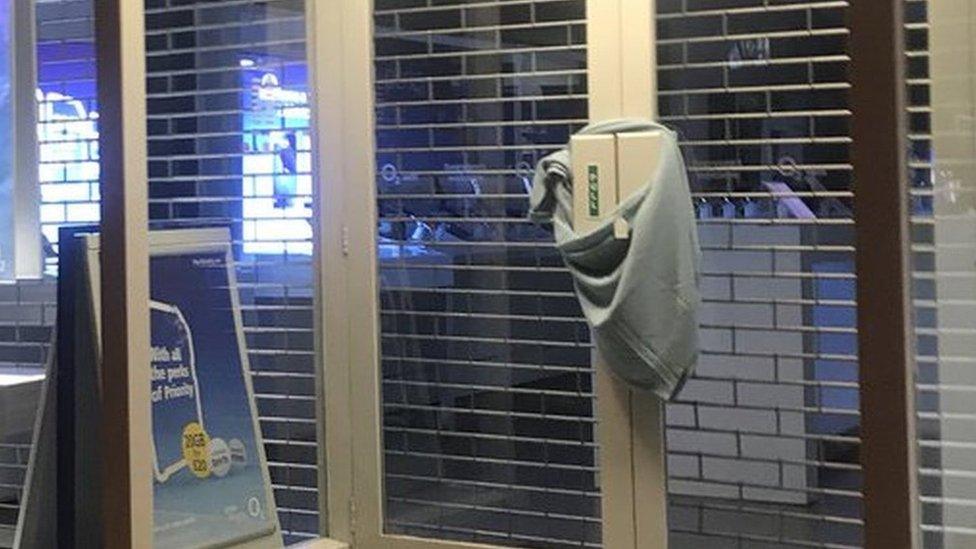
- Published26 February 2018
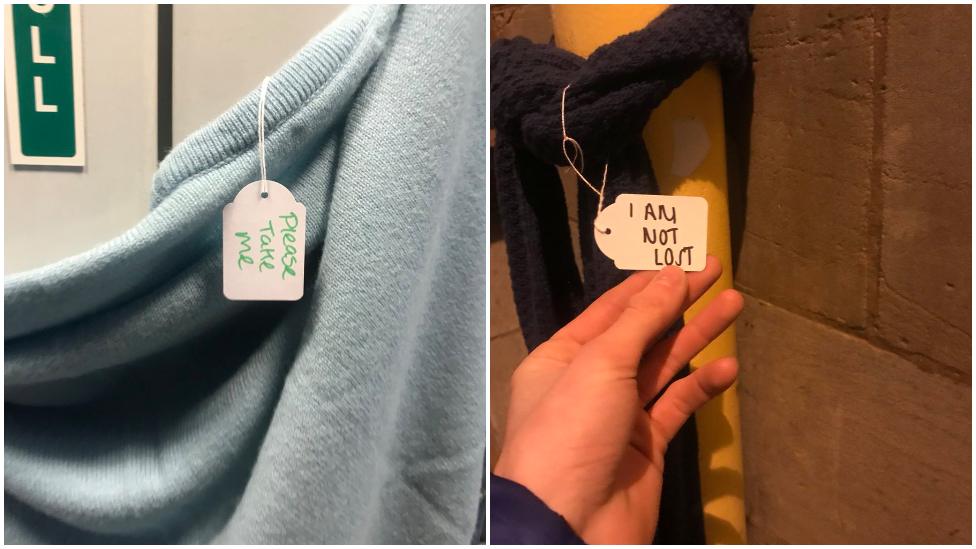
- Published27 February 2018
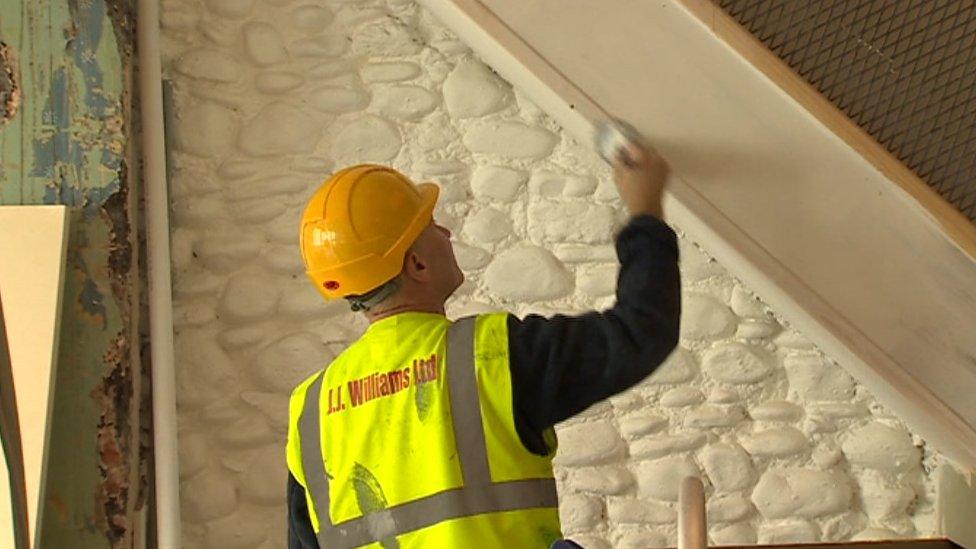
- Published2 March 2018
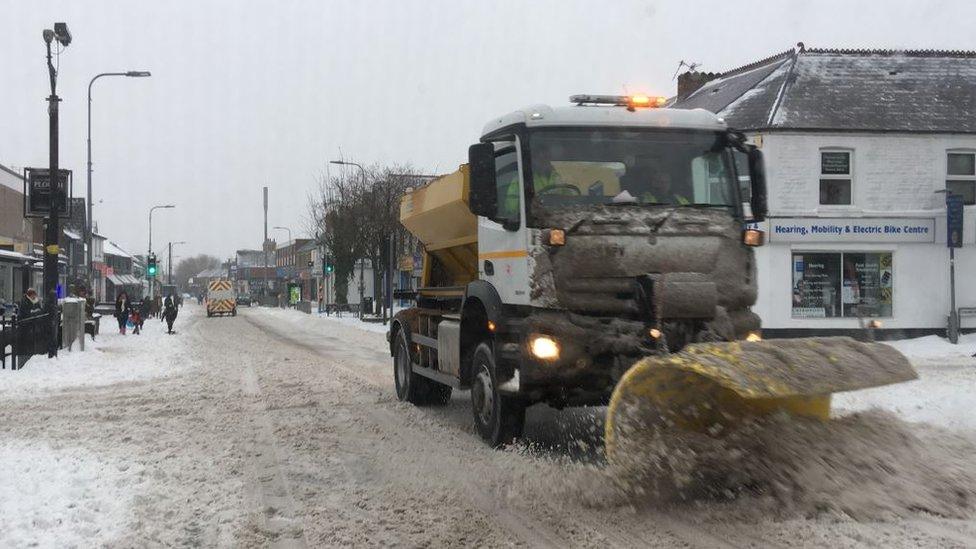
- Published2 March 2018

- Published26 October 2017
